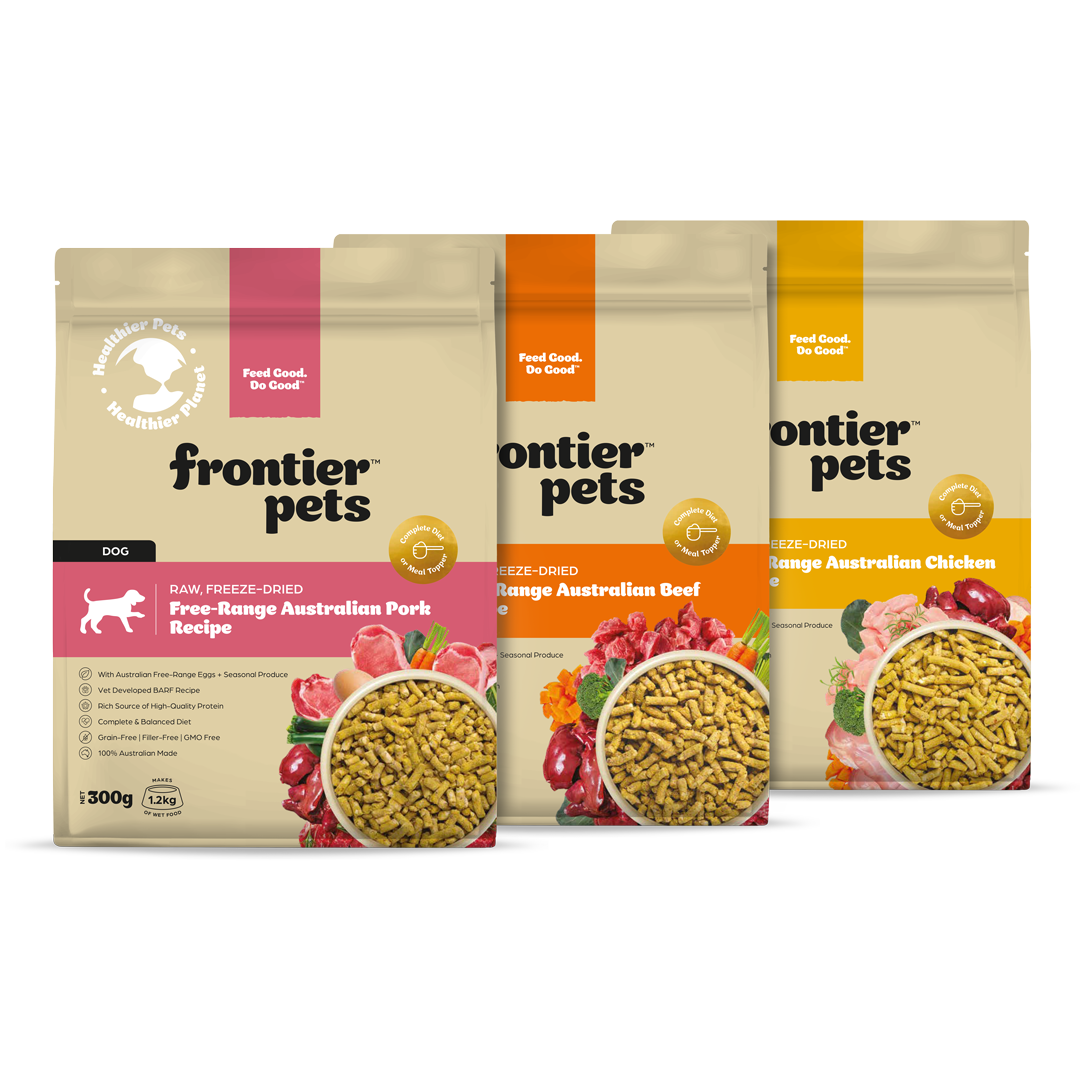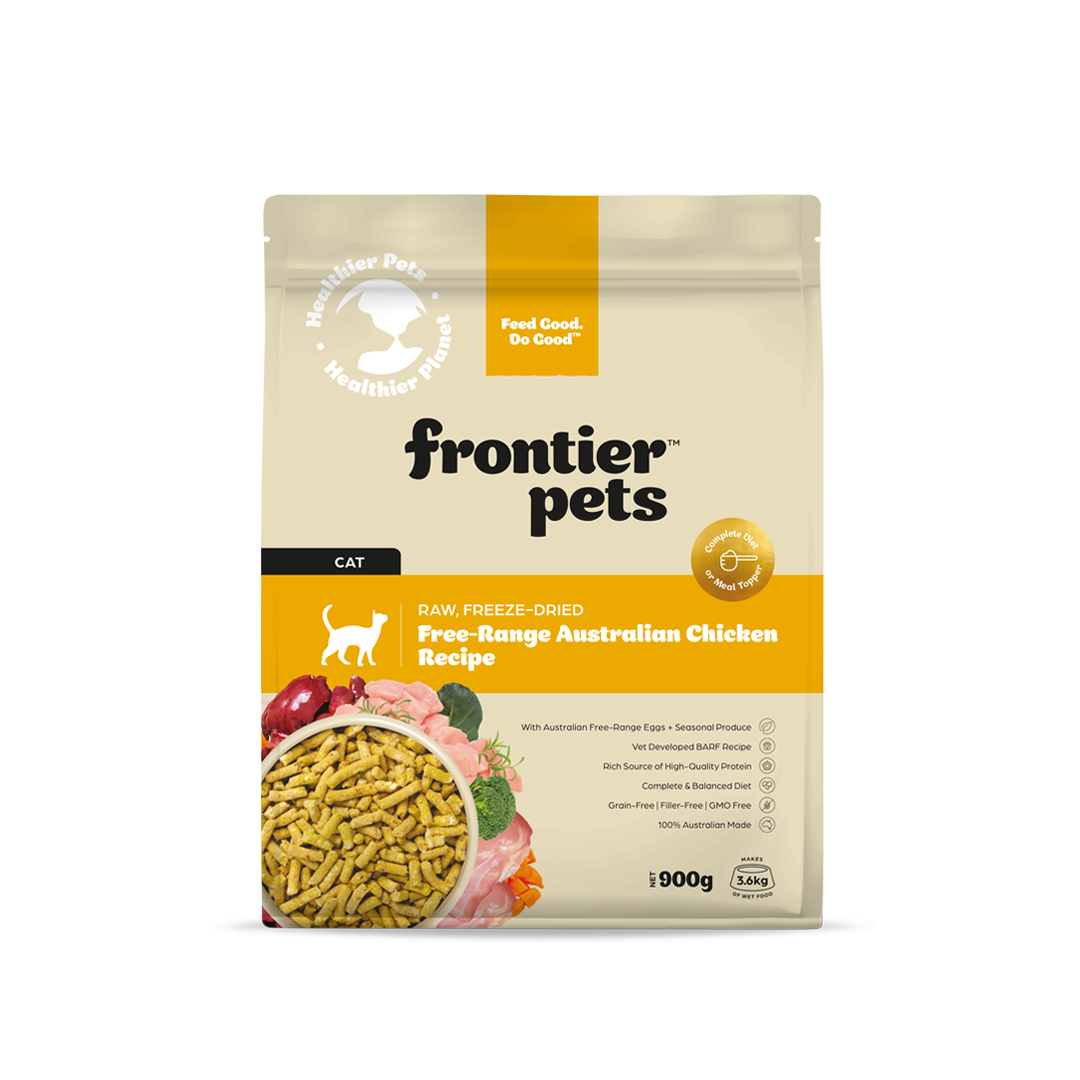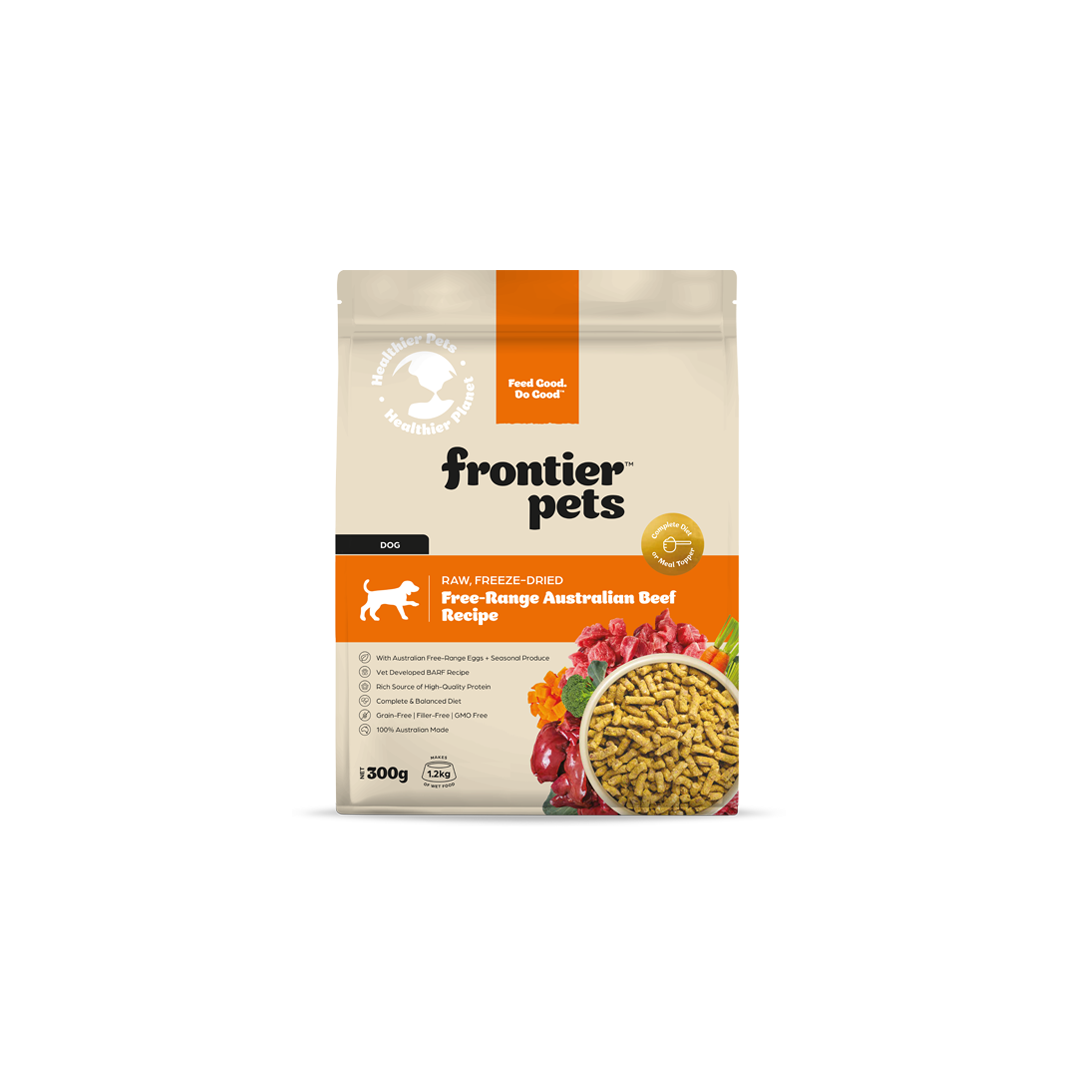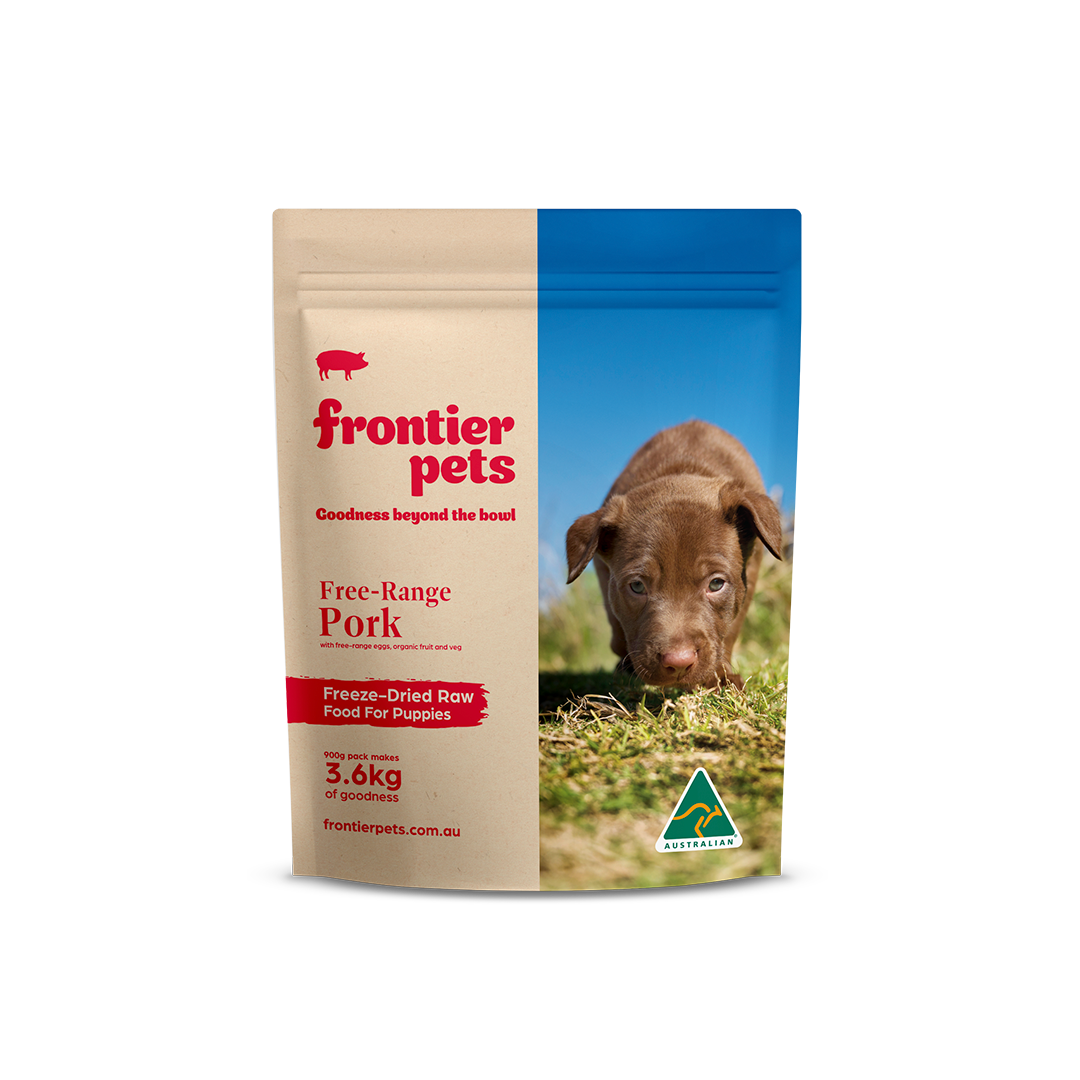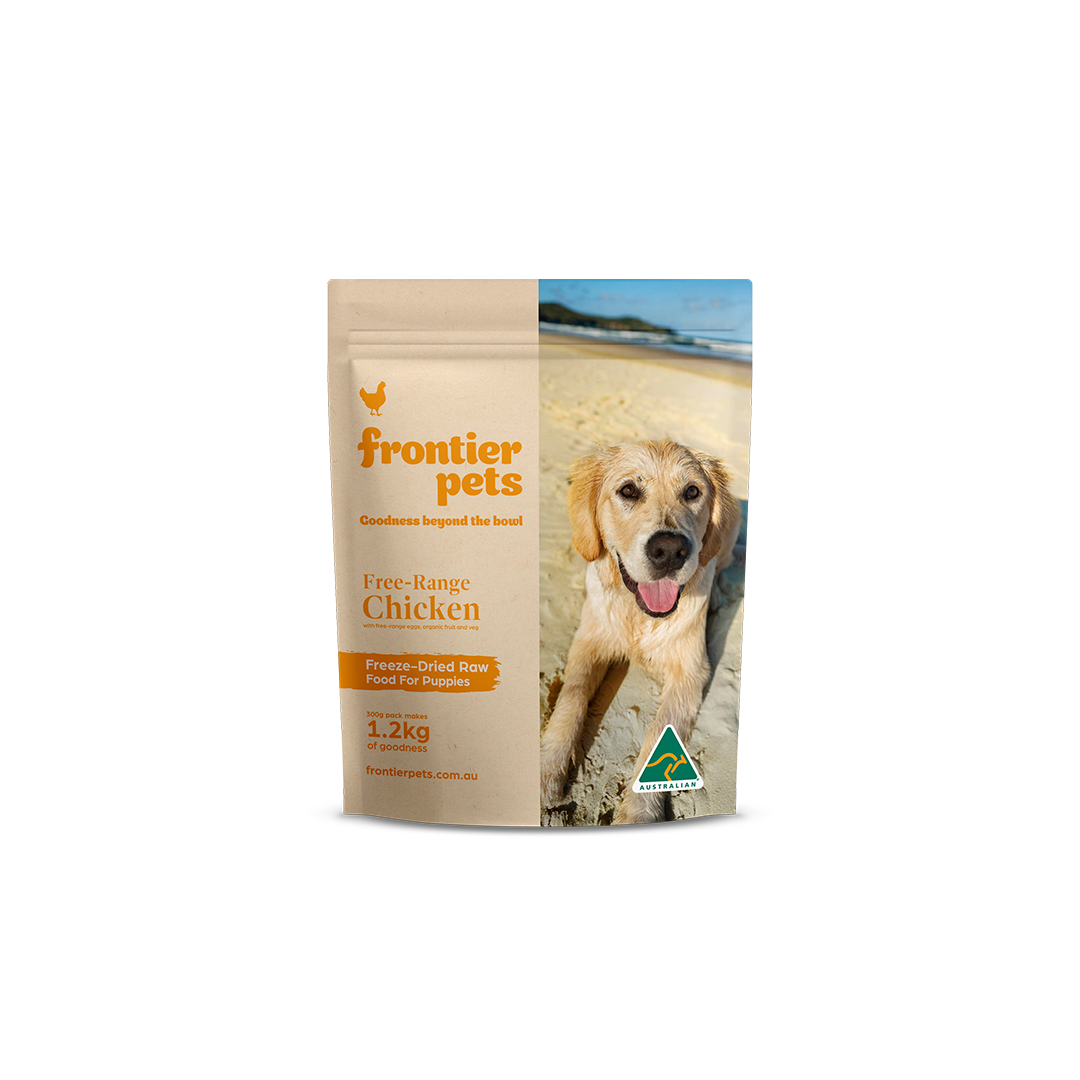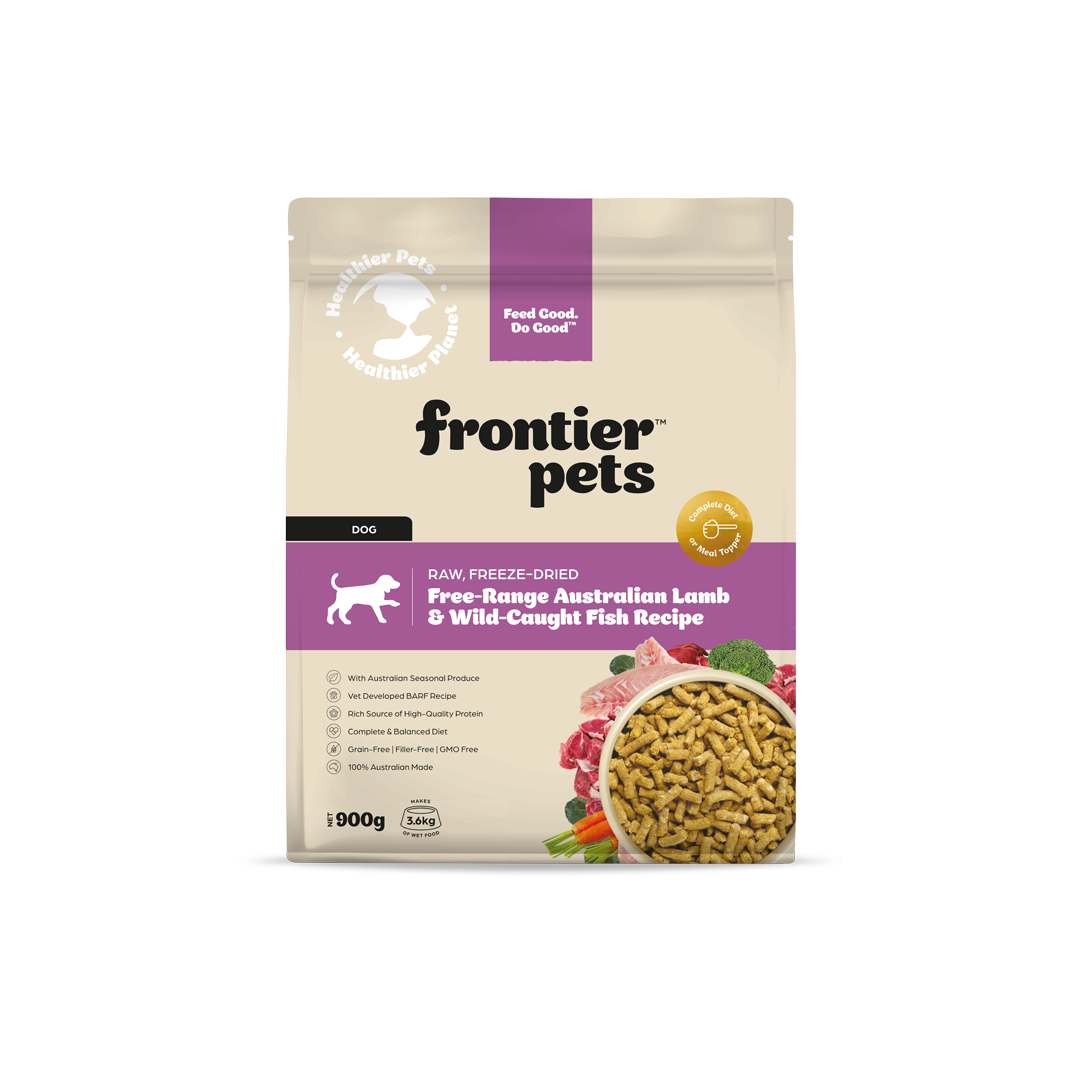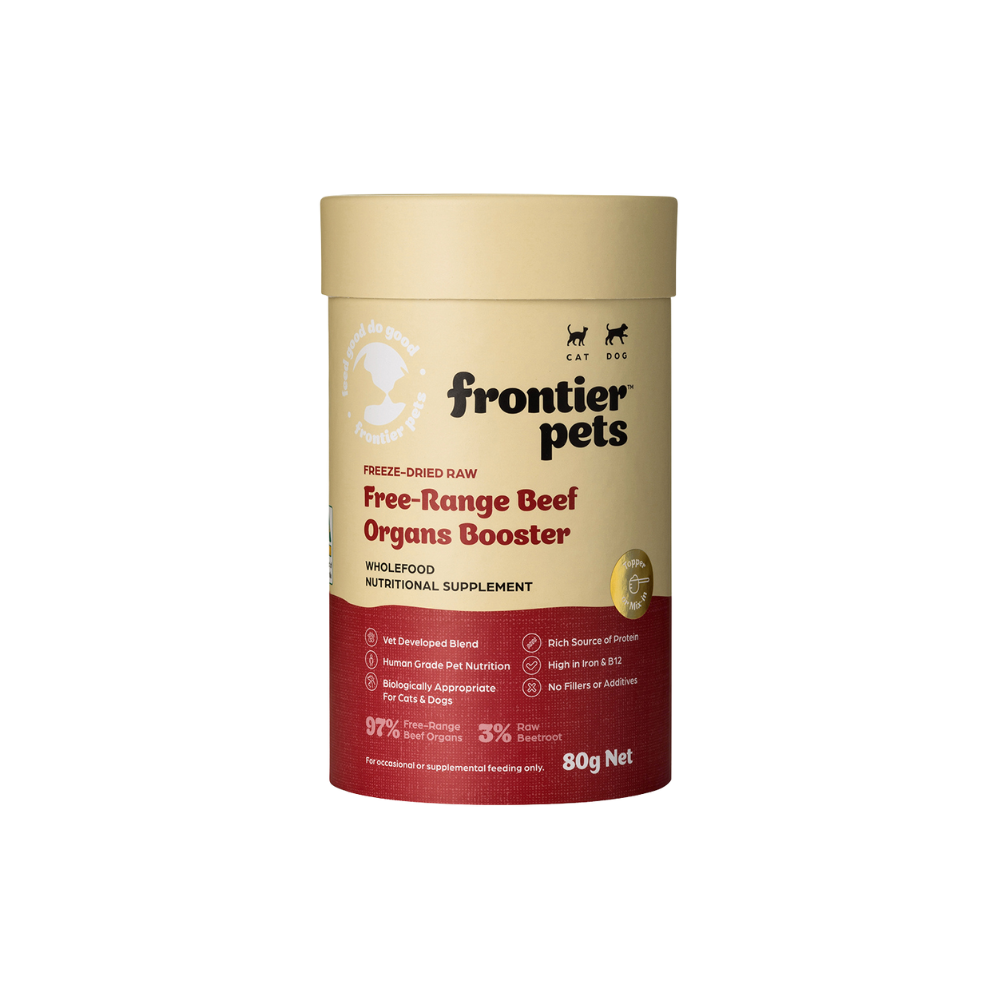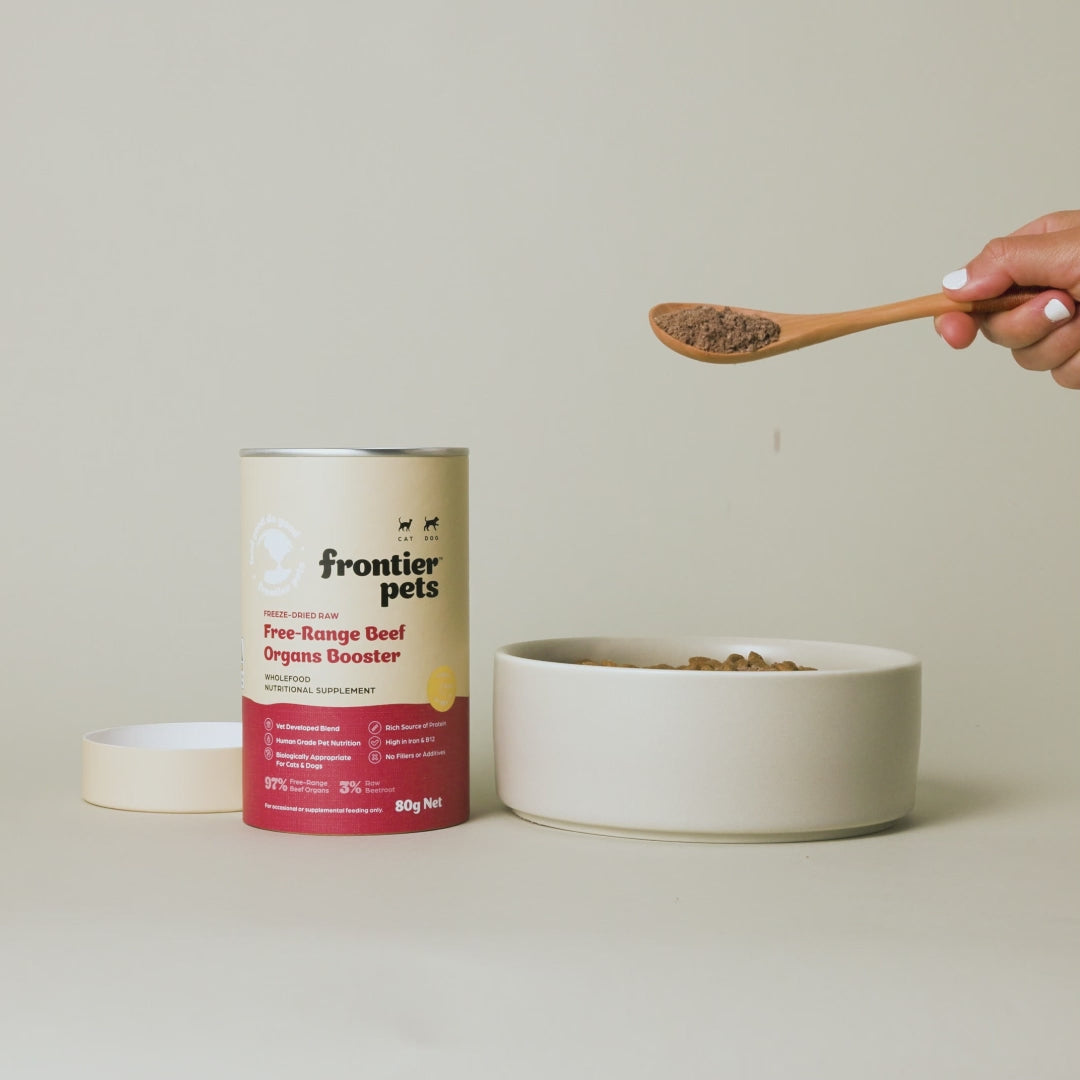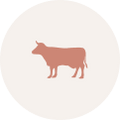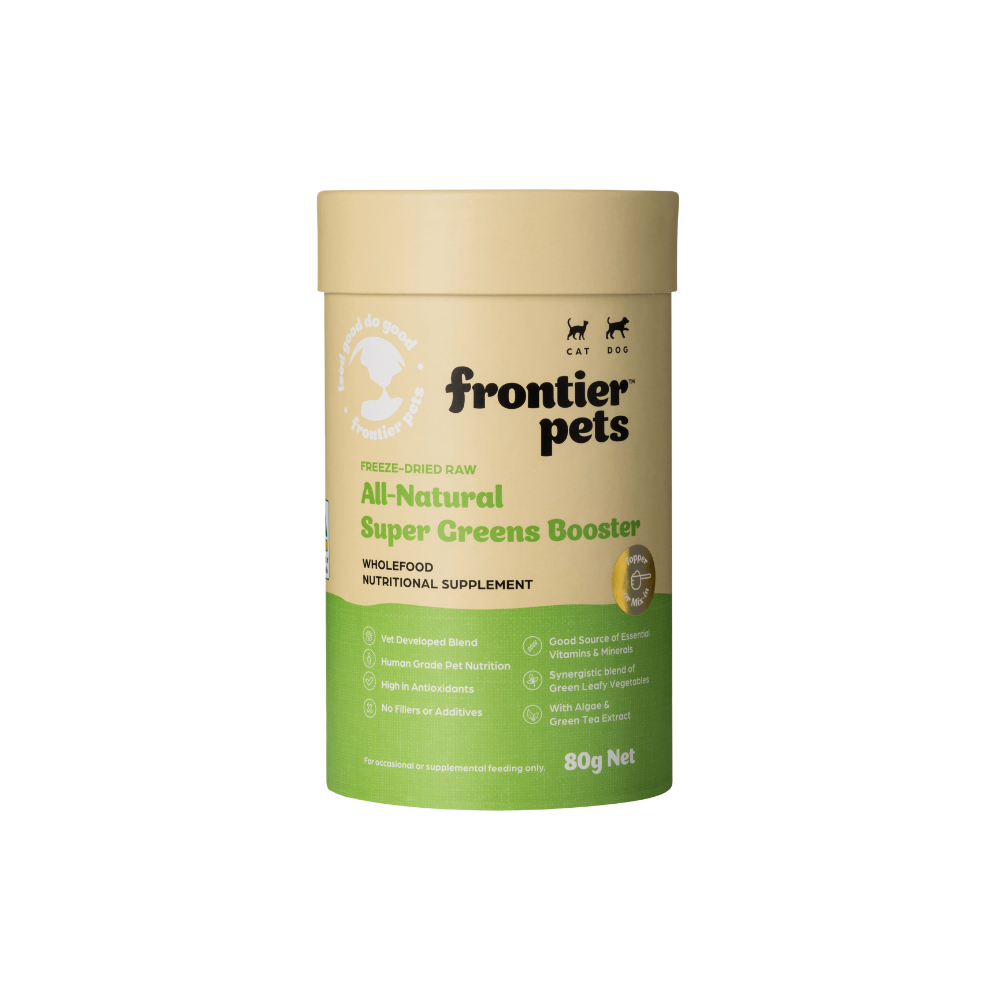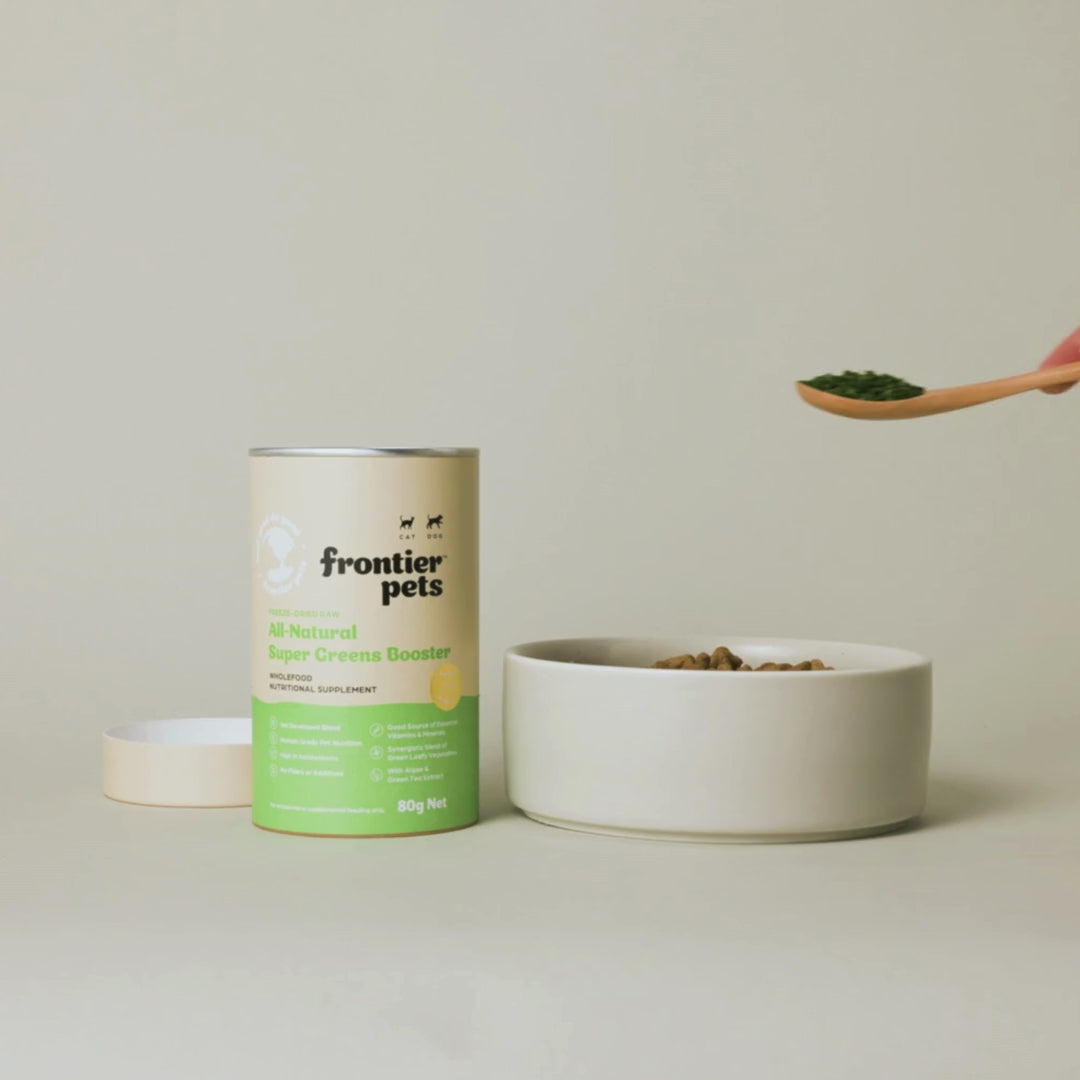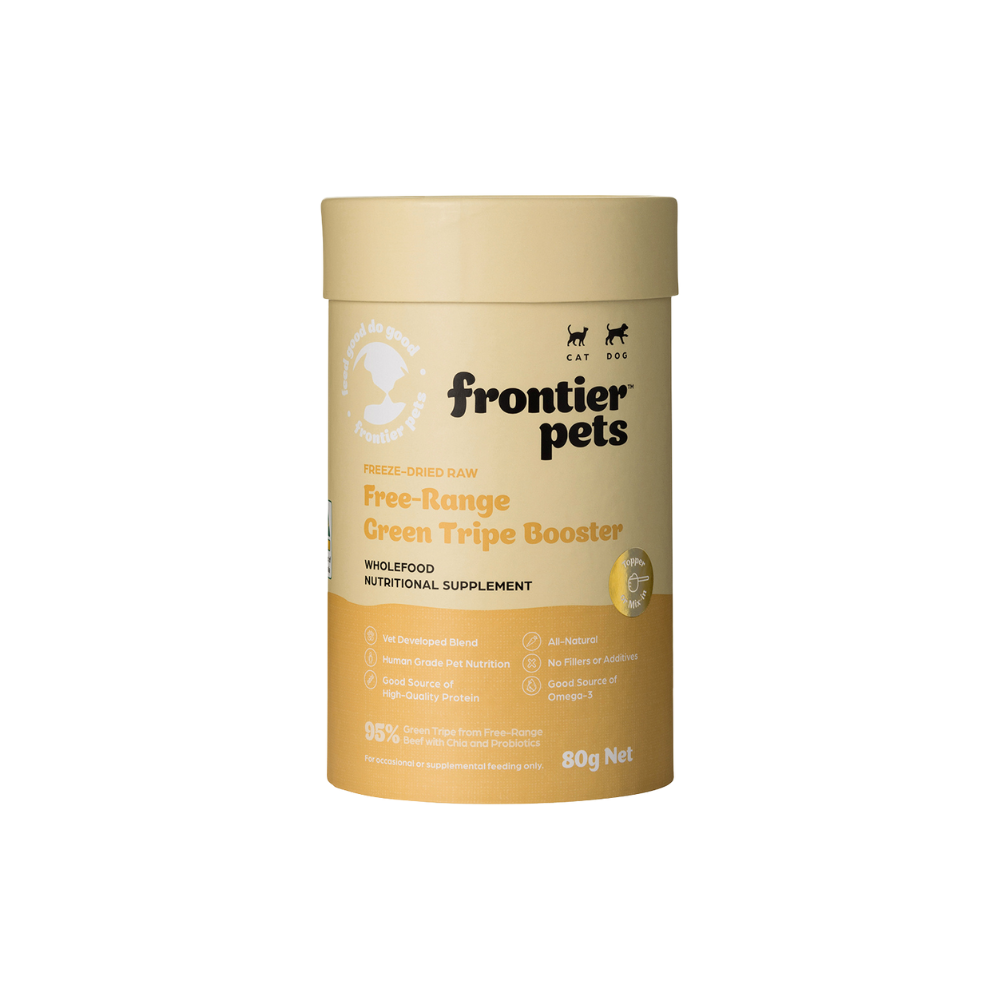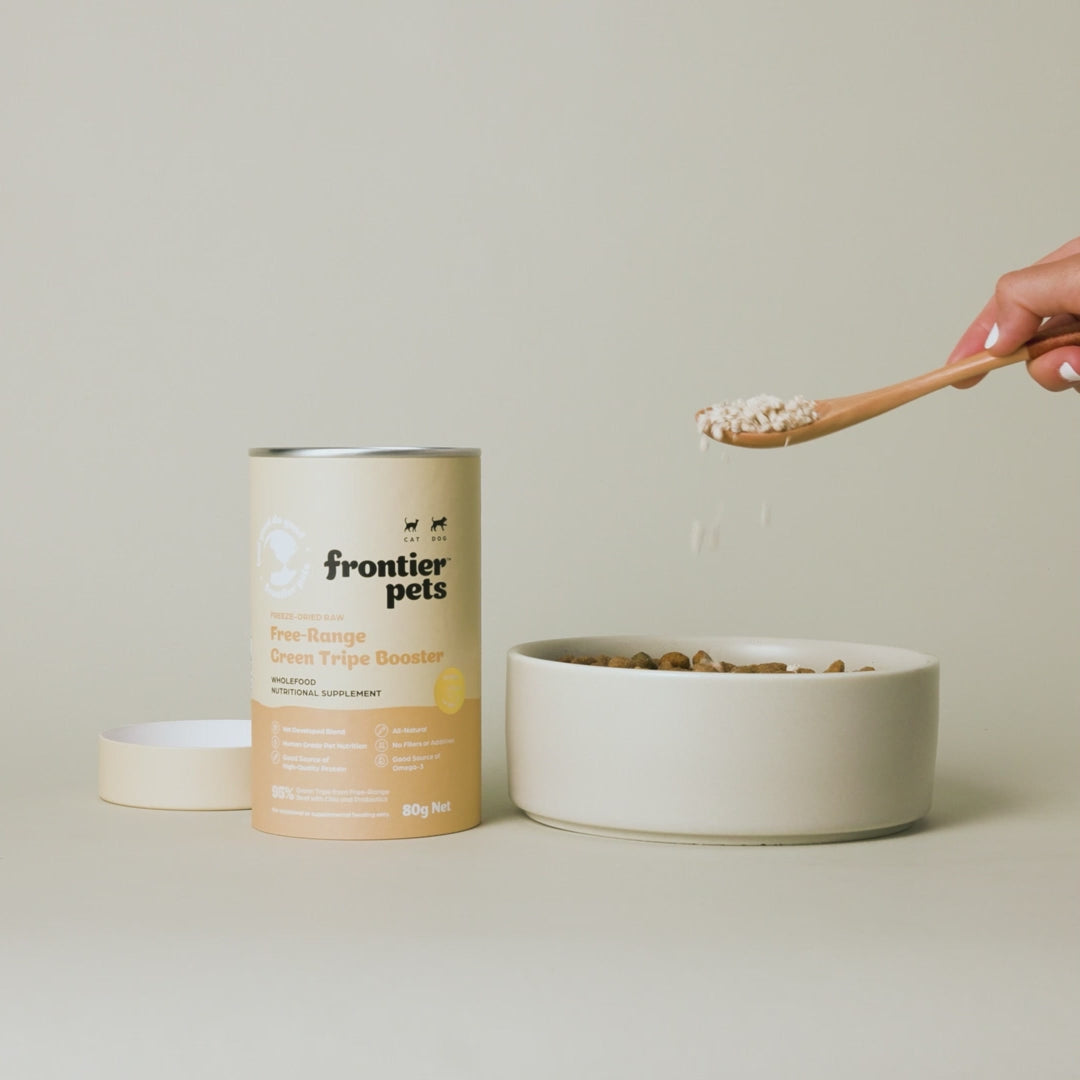Raw Feeding Guide For Your Puppy: Puppy Raw Diet

Key Takeaways
✔ Raw diets for puppies consist of uncooked, whole foods, mimicking a natural canine diet.
✔ Benefits of raw feeding include improved digestion, shinier coats, cleaner teeth, and higher energy levels.
✔ Transitioning to raw should be gradual—consult a vet and introduce raw food slowly.
✔ Frontier Pets Puppy Food offers a complete and balanced raw diet with sustainably-sourced ingredients, free from fillers and by-products.
Raw Feeding Guide For Your Puppy: Puppy Raw Diet
For many pet owners, raising a healthy pup is a top priority. You want to start your pups on the right track and set them up for success; choosing the right diet is a big part of that. Raw feeding has become increasingly popular. But is it the right choice for your puppy? This blog will get you into the world of raw puppy diets, answer your burning questions, and provide a roadmap to a successful raw feeding journey.
What is a Raw Diet for Puppies?
As the name suggests, a raw diet consists of uncooked, whole foods. These typically include muscle meat, organs, bones, fruits, and vegetables. Proponents believe this diet mirrors what dogs' ancestors would have eaten and offers a more natural, appropriate, unaltered, nutrient-rich diet.
👉 Feeding dogs raw food has gained traction as pet owners look for more natural alternatives. A puppy on raw diet may benefit from a cleaner, minimally processed meal that aligns with their natural dietary needs.
Benefits of a Raw Diet for Puppies
We believe a raw diet may have several potential benefits for healthy puppies:
- Improved Digestion and Gut Health: Raw food contains enzymes that aid digestion, and various ingredients promote a healthy gut microbiome.
- Shinier Coat and Healthier Skin: Raw diets are unprocessed and naturally rich in omega-3 and omega-6 fatty acids, contributing to a lustrous coat and healthier skin. A raw food diet may help optimise coat health and reduce shedding.
- Clean Teeth and Gums: If raw bones are present, chewing on them can help clean teeth, freshen breath, and keep gums healthy.
- Increased Energy Levels: The high protein, high fat and low carbohydrate content in raw food can provide sustained energy for growing pups.
- May Reduce Food Sensitivities: Some puppies with a tendency to food sensitivities may find relief with a raw diet that eliminates common allergens found in processed kibble, like wheat and corn.
How to Start Your Puppy on a Raw Diet
Transitioning your puppy to a raw diet requires careful planning:
1. Consult Your Breeder: If your pup has come from a raw feeding breeder and has already started on raw food, then transitioning them is easier than for a pup with no previous exposure (see point 3).
2. Consult your Veterinarian: At your puppy's check-up, discuss with your vet to ensure a raw diet is appropriate for your puppy's breed and health. They can also advise on any specific needs your pup has. If your vet is not familiar with raw feeding, we can provide you with a list of vets who are or try researching a local holistic vet.
3. Start Slow: A sudden change can upset your puppy's stomach. Begin by introducing small amounts of raw food alongside their current food, gradually increasing the raw portion over four weeks. If your puppy has started on another diet before raw food, consider the puppy raw food transition guide here.
👉 If you're considering feeding your puppy a raw diet, it's crucial to transition gradually to allow their digestive system to adjust. A sudden shift in diet may cause discomfort, so slowly integrating an uncooked diet into their meals is key.
How to Create a Raw Food Plan
We have done all the hard work for you. Our puppy food is a complete and balanced diet that is ideal and convenient for raw feeding your pup. If you'd like to understand more or make your own food, there are books available on “Real Food for Dogs and Cats by Dr. Clare Middle” to develop a balanced raw food plan for your puppy. This plan should include a variety of meat (at least 80%), raw fruits and vegetables, organs and offal, vitamins and minerals, and bones to ensure it contains all the essential nutrients your puppy needs. Consider consulting a veterinary nutritionist or holistic vet for a personalised feeding plan.
Do Puppies Need Supplements on a Raw Diet?
A well-balanced raw diet should provide all the essential nutrients your puppy on raw diet needs for healthy growth and development. However, ensuring proper nutrient balance is key to avoiding deficiencies or excesses.
When Are Supplements Needed?
While a properly formulated raw diet typically eliminates the need for additional supplements, certain factors may require supplementation, including:
✔ Diet Imbalance: If a homemade raw diet is not correctly formulated, certain nutrients may be lacking. Professional guidance from a veterinary nutritionist can help ensure a complete and balanced diet.
✔ Growth Stage Needs: Puppies have different nutritional requirements than adult dogs. If their diet lacks essential nutrients, supplementation may be necessary.
✔ Calcium and Phosphorus Balance: Puppies need the right ratio of calcium to phosphorus for healthy bone development. An improper balance can lead to growth issues or skeletal deformities.
✔ Essential Fatty Acids: While raw diets are naturally rich in omega-3 and omega-6 fatty acids, some diets may still benefit from additional fish oil or other sources of EPA/DHA for skin, coat, and brain development.
✔ Vitamin D and Other Micronutrients: If a diet lacks enough variety (e.g., limited organ meats or fish), supplementation of certain vitamins like vitamin D may be required.
✔ Specific Breed Considerations: Large-breed puppies have unique dietary needs to support controlled growth and joint health, potentially requiring tailored nutrient adjustments.
Why Frontier Pets Puppy Food Requires No Supplements
Our Frontier Pets Puppy Food is formulated as a complete and balanced raw diet, meaning it contains all the necessary nutrients without requiring additional supplementation. Key benefits include:
✔ Meets AAFCO & NRC Nutritional Standards – Ensuring puppies receive optimal nutrition.
✔ Sustainably-sourced, Whole-Food Ingredients – Providing natural vitamins, minerals, and amino acids.
✔ Freeze-Dried for Maximum Nutrient Retention – Maintaining essential nutrients without the need for artificial fortification.
How Often Should I Feed My Puppy on a Raw Diet?
Puppies have a lot of growing to do and generally have faster metabolisms and smaller stomachs than adult dogs. They will need smaller, more frequent meals throughout the day. See our feeding guide for general advice. For specific advice, see your vet.
Avoiding Puppy Raw Feeding Mistakes
- Improper Balancing: A raw diet needs to be carefully balanced to ensure your puppy gets all the essential nutrients. Seek professional guidance to avoid nutritional deficiencies. Our Frontier puppy food is balanced.
- Contamination Risk: Raw meat can harbour bacteria. Use good food safety when handling raw meat and vegetables. Always handle raw food with care and practice good hygiene to prevent contamination.
- Choking Hazards: Improperly sized bones can be a choking hazard for all dogs and pups. Choose appropriate bones based on your puppy's size and supervise them while chewing. Starting with our freeze-dried chicken necks, which are a great choice for most pups.

Is Frontier Pets Puppy Food considered a raw food diet?
Yes, Frontier Pets Puppy Food is classified as a raw food diet because it follows the BARF (Biologically Appropriate Raw Food) principles to create a recipe and uses raw and unprocessed ingredients. The freeze-dried process preserves the nutrition and makes raw food convenient, saving you fridge space.
How is Frontier Pets Puppy food different from commercial puppy kibbles in the market?
Frontier Pets Puppy Food stands out from kibble for several reasons. First, it's freeze-dried, not heat-processed. This preserves both the nutrition and the flavour (it's naturally delicious)!
Secondly, the quality of the ingredients. It is made from whole food and human-grade ingredients, not meals, fillers, cereals, or by-products.
Thirdly, it is made 100% in Australia, based in our headquarters in Brisbane, QLD, using locally and sustainably-sourced ingredients from Australian farmers.
Raw feeding can be rewarding in nourishing your puppy but requires knowledge and commitment. By understanding the raw diet, its benefits, and potential pitfalls, you can make an informed decision and embark on a healthy raw feeding journey with your companion pets.
Remember, this blog provides general information. Always consult your veterinarian before starting your puppy on any new diet or if you have any concerns.
Frequently Asked Questions (FAQs)
More Blog posts
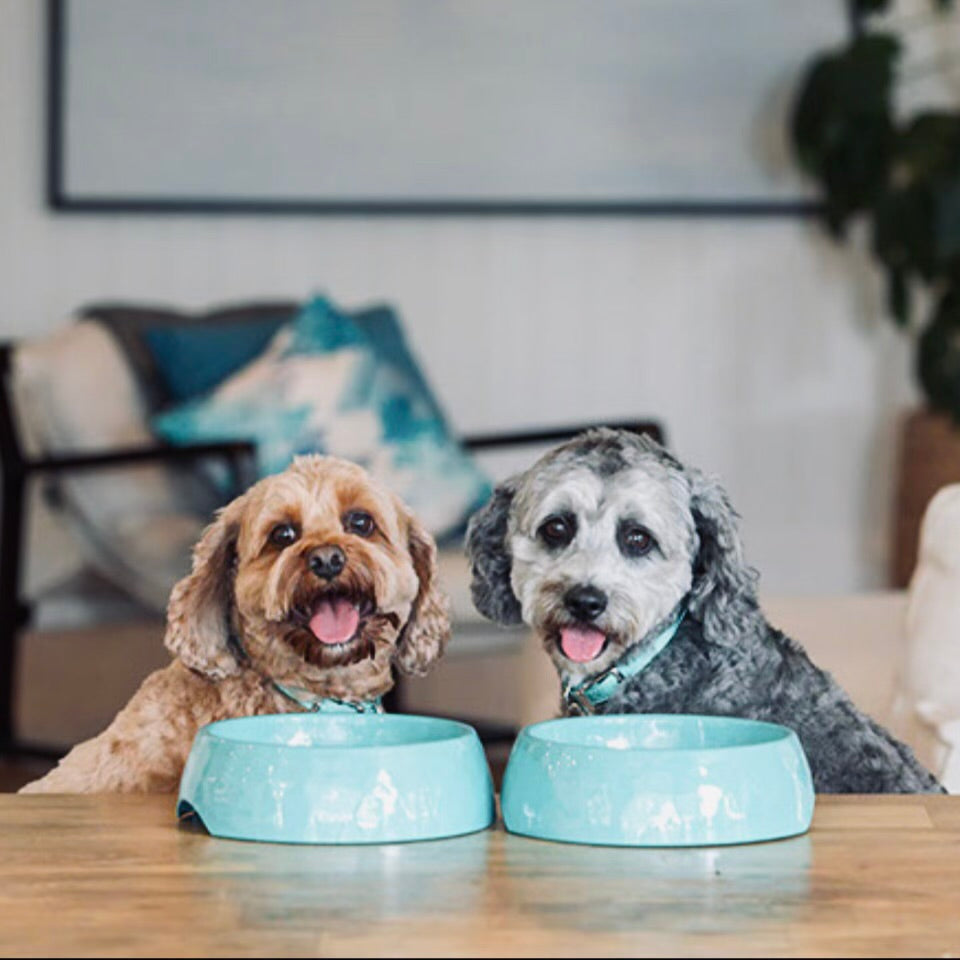
Best Low Maintenance Dog Breeds in Australia
Choosing your new fluffy companion is never easy. There is a wide range of considerations that go into finding the perfect pup for you! From your lifestyle to your living arrangements, it’s importa...
Read more
Steps With Pets Charity Challenge, August-September 2025
Steps with Pets – Tottenham Hotspur’s global charity dog-walking challenge, supported by Frontier Pets Calling all dog-loving Spurs fans around the world! This is your chance to combine your pass...
Read more
